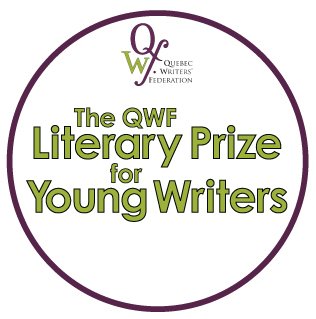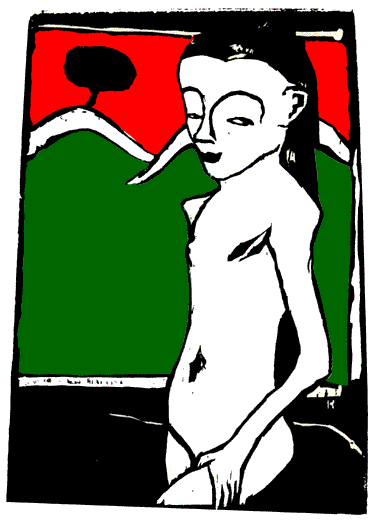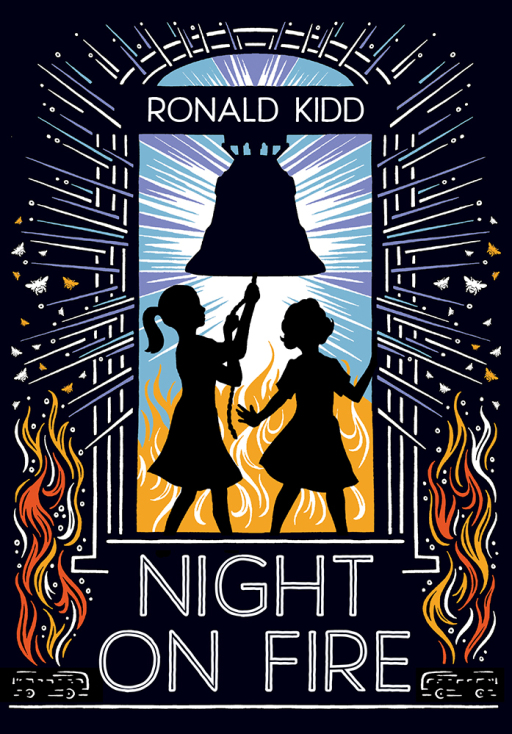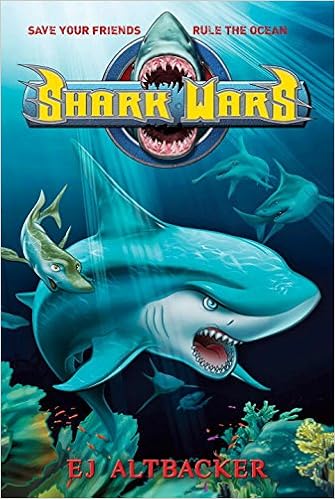Note: Don't ever miss a post on Quick Brown Fox. Fill in your email in the box to the right under my bio, and get each post delivered to your Inbox. ~ Brian
Alec Shane is a literary agent with Writers House. One of the largest literary agencies in the world, Writers House
prides itself on providing an extraordinary amount of individual client
attention, combined with the full service benefits of foreign and sub rights
departments, as well as a full accounting and royalty staff.
“I began my career at Writers House as an intern in September of 2008
and simply refused to leave,” says Alec. “So I was given the wonderful job of
Assistant to Jodi
Reamer {who represents Stephenie Meyer and John Green, among others}.
I’m now also in the process of actively building my own list and currently
represent a fairly eclectic mix of Children's and Adult fiction and nonfiction.
I'm eagerly looking for both.
“Prior to working at Writers House, I held a number
of different jobs, including a brief stint out in Los Angeles as a professional
stuntman. And if you don't think knowing how to take a punch and getting thrown
through a glass window are both essential tools in the book business, then you
clearly don't know publishing.”
Genres
and Specialties
Fiction: General fiction, Mystery, Suspense/thriller, Children's books,
Juvenile fiction, Middle-Grade, Horror, Historical Fiction
Nonfiction: Biography, History, Sports, Humor, Military History
Best known projects: SHARK WARS, EJ Altbacker, THE LAST PUNISHER, Kevin
Lacz, NIGHT ON FIRE, Ronald Kidd, THE BOOK OF BLOOD, HP Newquist, HOW THE
STATES GOT THEIR SHAPES, Mark Stein, YOU MIGHT REMEMBER ME: THE LIFE AND TIMES
OF PHIL HARTMAN, Mike Thomas
The
interview…
Quick Brown
Fox (QBF): Do you have suggestions about getting manuscripts in shape before
writers start the submission process?
Alec: This is incredibly important, as once a manuscript
is out, it’s out. One of my biggest pet peeves as an agent is when an author
who queried me recently emails me to ask if I can swap out the original query
with a new, revised one; definitely don’t that. Workshop it, edit it, edit it
again, get second, third, and fourth reads, and when you think to yourself “if
I have to look at this manuscript one more time I’m going to break something,”
then it’s time to send out.
QBF: Should
writers have their manuscripts reviewed by a professional editor before
submitting?
Alec: It’s never a bad thing to have a professional
editor take a look at a manuscript, as a lot of editors also offer advice on
who to best submit to and will also work on getting your query letter into
shape and all other aspects of the process. That said, by no means is it
necessary; as long as you have a good critique partner or a strong editorial
eye, you can save yourself the money. Professional editors can definitely help,
but not using one isn’t going to doom your manuscript.
QBF: Are
there any books about writing or editing that you especially recommend?
Alec: It kind of starts and stops with On Writing by Stephen King, in my
opinion. It’s probably the best “how to” book on writing out there. Writing the Blockbuster Novel by Al
Zuckerman is also a good resource.
QBF: What
sort of books are you especially looking for?
Alec: I’d love to find the next Goosebumps or any kind of
MG or YA horror. I’d also love to find a mystery or thriller with a female
serial killer. The villain always seems to be a guy; women can be just as
disturbed, twisted, and evil as men, so let’s get a female Hannibal Lecter out
into the world.
On the nonfiction side, I’m looking for a book
about the history of the American barbershop, as well as a book about the men
who were commissioned as flamethrowers in WWII.
QBF: Is
there anything you see too much of or that seems overdone these days?
Alec: I see a lot of submissions that mirror what’s currently on the shelves,
as if authors see what’s trending and then try to write to that trend. The
problem with this strategy is that by the time the book actually hits the
shelves, the trend is already over; remember, the time that elapses between
when a book sells to a publisher and when it’s released is at least a year,
sometimes more.
That said, here are some opening scenes in novels that I see way too
much. If your book opens with any of the following, know that there are a ton
of other novels doing the exact same thing:
- Just waking
up in the morning
- On a
train/plane/automobile on the way to your new school/job/home/life
- At a funeral
- Out for a
morning run
- Getting
chased through the woods
- Getting yelled at by mom to come downstairs and eat breakfast/get to
school
QBF: On the
children’s fiction side, do you represent the whole range: Picture Books,
Chapter Books, Middle Grade, and Young Adult?
Alec: The bulk of my children’s list is Middle Grade; I
have a few YA projects, but as my kids list is skewed primarily towards boys,
there’s more demand for that kind of book in the MG sphere. Teenage boys tend
to jump straight to adult books, so finding a strong boy-centric YA is
difficult (not that I’m not looking!). I wish I understood picture books, but I
just don’t have an eye for them.
QBF: Are you
interested in adventure fantasy?
Alec: Absolutely! Although I will say that sword and
sorcery fantasy isn’t really my thing. Not a big Lord of the Rings guy, so no elves and wizards and fairies and the
like. But amazing new worlds and ordinary people thrust into extraordinary
circumstances is right up my alley.
QBF: On the
adult side, are you interested in women’s fiction?
Alec: Not particularly.
QBF: The
terminology in the publishing world doesn’t seem terribly consistent. How do
you define upmarket or upscale fiction and are you looking for it?
Alec: Upmarket fiction is usually defined as fiction that straddles the line
between commercial and literary. Literary fiction is very heavy on beautiful
prose, whereas commercial fiction is primarily plot-driven and doesn’t rely as
much on the writing.
There’s also “high concept” fiction, which is usually defined as a book
in which the plot is easily accessible and you understand the concept right
away. “Cloned dinosaurs run amok at a futuristic theme park” (Jurassic Park)
or “sleazy lawyer finds himself incapable of lying for 24 straight hours” (Liar
Liar) are good examples of high concept ideas.
I’m just looking for good books. I don’t care about
upmarket or literary or speculative or whatever other term you want to throw
in. Just write something awesome and send it my way.
QBF: Can you
tell us about your process when you’re considering a project...
Alec: I usually read a manuscript several times before
deciding to take it on. When you acquire a book, you’re working for free until
it sells, so you have to really believe in it in order to pull the trigger.
I’ve read manuscripts that I have absolutely loved, but decided not to take on
because I knew I’d have a hard time selling it, so it also isn’t simply about
books that I really enjoy. The project has to hit that sweet spot between “I
want to work on this book for the next several years” and “there is room for this
book on the shelf.” So I take a lot of things into account before signing a new
client.
QBF: What
grabs your attention when you’re reading a query
letter?
Alec: The thing I look for more than anything else when
reading a query is whether or not the author did his/her homework and is
querying me for a reason. Even something as simple as “I noticed on your
Publisher Marketplace page that you’re looking for horror novels” or “I saw
from a recent Twitter post that you’d like to see a book that features a big
dog” will go an incredibly long way in making your query stand out. All too
often, authors write one extremely generic, form query, and then just blast it
out to every agent email address they can find. Doing your research and making
sure you personalize your query is going to work wonders.
QBF: Besides
a great book, what else you look for in a client? Do you require your clients
to have a strong social media presence?
Alec: One element that often flies under the radar when this question gets
asked is including whether or not we’re going to get along. I always speak with
an author on the phone before officially offering representation, as I want to
make sure we have a good dynamic and share the same vision for a book and a
career. Signing with an agent is a lot like a marriage; you don’t marry someone
who isn’t a good fit for you, and the same applies to the author/agent
relationship.
In terms of social media presence, it’s never a bad thing to be active,
but I have never read a book, loved it, and not taken it on because the author
didn’t have enough Twitter followers. I worry that authors spend too much time
getting Facebook likes and not enough time honing their craft.
Nonfiction is a different story, however. When it
comes to nonfiction, platform is extremely important, so I’ll put much more
weight into online presence when considering a nonfiction project.
QBF: In
general, what is the outlook for new and aspiring writers?
Alec: What I think makes it most difficult for aspiring writers right now is
the combination of how impatient we have become as a society and how many
outlets for publishing your book currently exist. Publishing a book is a long
and sometimes glacially slow process.
With very few exceptions, if I were to sell a book tomorrow, it wouldn’t
be coming out until next year at the very earliest. And that doesn’t take into
account how long it takes to write the book, revise it, revise it again, revise
it a third, fourth, and fifth time, find an agent, revise with the agent,
revise with the agent again, submit to editors, find the right buyer, negotiate
the contract, sign the contract, revise with the editor, and revise with the
editor again. That whole process can take years.
OR, you can write it, go to Amazon, click that
little “Publish” button, and your book is up for the world to read – along with
the 15,000 other books that came out that day. You have to be
patient and willing to do the work if you want to make it as an author – and a
lot of folks have a lot of trouble doing that these days.
QBF: Can you
tell us something about how you work with authors....
Alec: I’m very hands-on as an agent, especially
editorially. The market is extremely tight right now, so it’s important to have
the strongest manuscript possible when sending out to editors, and I work with
my authors to ensure that everything that can be done gets done. I also like to
try and custom-tailor my agenting style to fit an author’s specific needs; some
authors like to get more attention than others, and so it’s hard to describe my
style in broad-strokes terms.
QBF: What
writing advice do you give most to your clients?
Alec: Don’t worry about trends or what’s hot right now or
anything like that. Just write what you want to write and what you’re excited
about. I can list all the rules and dos and don’ts and clichés and everything
else about publishing – but all of that just vanishes in the face of a great
book.
The subject heading should read: "Query for
Alec Shane: TITLE"
Include the first 10 pages of your manuscript. No
attachments.
Brian Henry
will lead Writing for Children & for Young Adult workshops on Saturday,
May 27, in St. Catharines with Anne Shone, senior editor at Scholastic Books
(see here),
and on Saturday, Aug 12, in Collingwood with literary agent Monica Pacheco
(see here).
In the fall, Brian will lead a weekly Writing Kid Lit class, Thursday
mornings, Oct 5 – Nov 30, in Oakville (see here).
Note: For updated listings of Writing for Children
& for Young adult workshops and for weekly Kid lit classes, see here (and scroll down).
And don't
miss joining us for a weekend writing retreat at Arowhon Pines Resort in
Algonquin Park. There are two retreats scheduled for 2017: June in Algonquin Writing
Retreat, Friday, June 2 – Sunday, June 4 – or extend
your retreat to Monday, June 5 (see here) and the Fall Colours Writing Retreat, Friday, Sept 15 – Sunday,
Sept 17 (see here).
Other upcoming workshops include: “You can write great
dialogue,” Saturday,
June 10 in Guelph, with author Hannah McKinnon, (see here),
Saturday, July 15, in Mississauga (see here),
and Saturday, July 22, in London (see here),
and “How to Write
Great Characters,” Saturday, June 17 in Burlington
(see here).
This summer Brian will be leading
three creative writing courses, introductory to advanced:
Exploring Creative
Writing, Tuesday
afternoons, July 4 – August 22, in Burlington. See here.
Next Step in
Creative Writing, Wednesday evenings, July 5 – August 23, in
Burlington. See here.
Intensive Creative
Writing, Wednesday
afternoons, July 5 – August 23, in Burlington. See here.
Details of all three courses here.
In the fall, for the first time, Brian will be
leading a creative writing course in Toronto:
Intensive
Creative Writing, Monday mornings, Sept 25 – Dec 4. See here.
For more information or to reserve a spot in any
workshop, retreat, or weekly course, email brianhenry@sympatico.ca
Read reviews of Brian’s courses and
workshops here.
See Brian’s complete current schedule here, including writing workshops
and creative writing courses in Algonquin Park, Bolton, Barrie, Brampton,
Burlington, Caledon, Georgetown, Guelph, Hamilton, Ingersoll, Kingston,
Kitchener, London, Midland, Mississauga, Oakville, Ottawa, Peterborough, St.
Catharines, Saint John, NB, Sudbury, Thessalon, Toronto, Windsor, Woodstock,
Halton, Kitchener-Waterloo, Muskoka, Peel, Simcoe, York Region, the GTA,
Ontario and beyond.
Navigation tips: Always check out the
labels underneath a post; they’ll lead you to various distinct collections of
postings. Also, if you're searching for a literary agent who represents a
particular type of book, check out this post.















